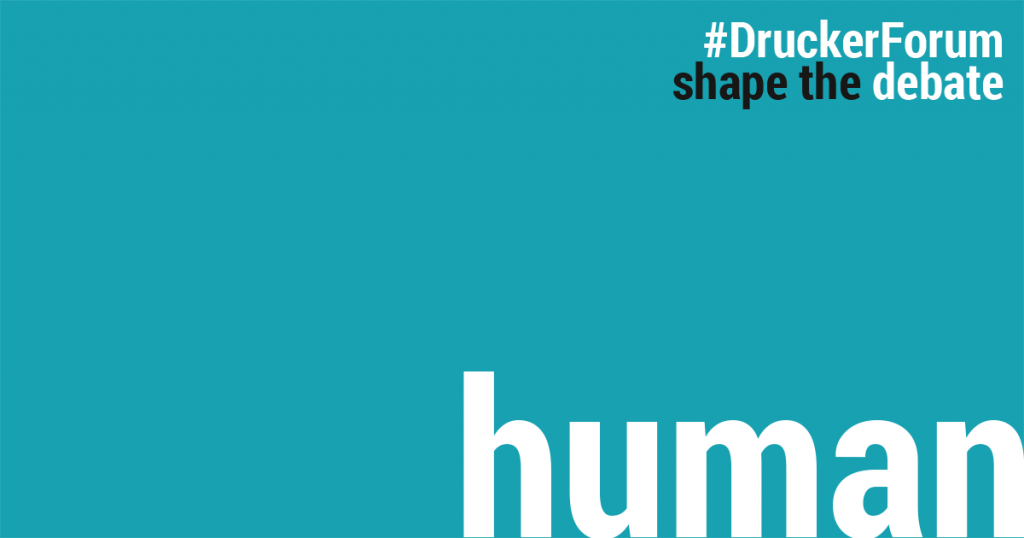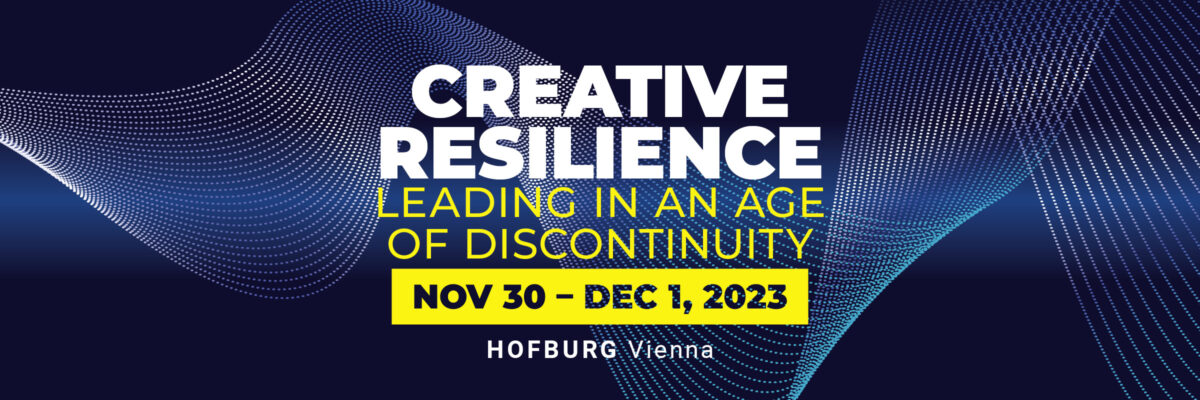
After the shock of the first lockdown in 2020, the world has experienced an erratic, difficult and long return to an almost normal situation, with no certainty of being completely out of the crisis. In other words, uncertainty, with its share of surprises, is with us for a long time.
One might have thought that the violence of the shock, which clearly showed the limits of our management tools, would lead to a profound rethink. It did not. After the shock, and despite the persistence of large dark clouds over their heads, organizations and states have gone back to designing action plans on the basis of expert forecasts, without which they seem incapable of conceiving their actions.
Drucker Forum 2021
The persistence of predictive tools despite their limitations
For years, we have been invited to “embrace uncertainty”. Despite this, and the evidence of repeated prediction accidents, successive surprises, and radically unexpected changes, almost all decision-making tools have remained anchored in a positivist and predictive paradigm.
These tools are based on a model that consists in identifying a future issue, defining a goal related to that issue (a vision), and then determining the means to achieve that goal. The underlying mental model is that the more important the identified issue is, the more ambitious the action must be, and the more resources must be used. This model underlies all major plans for transforming organizations and states. Any modest action is considered vain and futile. Faced with the magnitude of certain issues, such as climate change, the dominant thinking is that a revolution is needed, with big ideas, ambitious plans and grandiose gestures. But as history shows, revolutions are usually synonymous with disaster, and more harm than good. The repeated failures of major transformation plans, both corporate and political, confirm this.
The three mistakes of predictive management tools
The “revolutionary” approach is a costly dead-end because it makes three errors :
– An ontological error, concerning the nature of the world: that of thinking that the world is a mechanism whose springs we know, and which evolves in a linear way. It would be enough to press this or that “button” to obtain the desired effect.
– An epistemological error, concerning what we can know: having more and more data allows us to anticipate the evolution of the world. A shot of “big data” or an in-depth survey, and we would know what to do.
– A sociological error, on decision-making: that of conceiving it as a solitary and purely intellectual exercise. Let’s gather very intelligent people around a table and our problems will be solved!
These three errors create a fatal conceit, to use the words of the economist Friedrich Hayek, which translates into an arrogant, even hubristic posture of excessive confidence in our ability to control the world. This posture is the cause of its own failure with its share of human suffering and unsolved problems.
One example among a thousand illustrates the impasse that this posture constitutes: the war on drugs in the United States was launched with great fanfare by President Richard Nixon in 1970. Despite the colossal means, about ten billion dollars a year merely in direct expenses, the UN finally officially recognized in 2016 that this war was a failure with disastrous social consequences. Has it stopped after that? It hasn’t.
An alternative approach: small wins
As Richard Straub, President of the Peter Drucker Forum, reminded recently in Harvard Business Review, rather than this arrogant posture, it is better to adopt a totally different mindset inspired by the thinking of Peter Drucker, the “father” of management thinking – a posture marked by humility, such that change should rather be considered as incremental, anchored in continuity; an observation that the turbulence we are currently experiencing only makes more obvious.
A posture of humility, whereby we accept that we are not able to predict the future and that we cannot change a system in a mechanical and authoritarian way, does not mean giving up on change, quite the contrary. It is even the condition for being able to change.
A rich current in sociology, political science and organizational theory has indeed long defended the idea of an incremental approach to change, by small steps and on a local scale. This current has shown how the most complex problems are best solved by organizing a series of small wins that are accessible to individuals, whoever they are and wherever they are. Their succession constitutes a solid foundation that builds up gradually, limiting risks, dissuading opponents and rallying the undecided in favor of change.
Two imperatives for acting with uncertainty
This alternative requires two imperatives to succeed:
– prudence: first and foremost, one must survive in the face of uncertainty and surprises, and therefore organize oneself to avoid certain undesirable futures. It is also necessary to respect what already exists and to proceed in a humble way by avoiding revolutionary radicalism.
– progress: protection is not enough; we must also prosper thanks to uncertainty and the opportunities it opens. It is a question of creating the future we want, and not simply letting it happen; this is the entrepreneurial dimension of transformation.
There is a tension between the two, but it is a creative tension; it is that of any living organism. It must be constantly recreated: an excessively cautious approach leads to immobility, which means death, while a revolutionary approach leads to excesses, undermining the cause.
Rethinking management tools now
As Peter Drucker said, “it is precisely because change is a constant that its foundations must be particularly solid”. And what this foundation must be based on is people. In an uncertain world, changing profoundly, we must abandon the vision of Plato and Saint-Simon, that of the world as a machine piloted by a few great geniuses and underlings carry out the orders. No, we must start with people, training them to think new things, and showing them that they can change the world around them. We must give them the means to act and transform their environment. This is why the key to transforming the world lies in education, what French philosopher Paul Valéry evoked when he wrote: “…the aim is to make you men ready to face what has never been.”
An uncertain world calls for a rethinking of management tools, and in particular the mental models on which they are built. This is a task for researchers and teachers, of course, but also for managers themselves. We must start this work now, and not wait for the next catastrophe.
This article was first published on HBR France and is part of the blog post series on HBR related to the Drucker Forum: https://www.hbrfrance.fr/chroniques-experts/2021/11/40540-bienvenue-en-incertitude-comment-reinventer-les-outils-du-management-pour-eviter-la-prochaine-catastrophe/
About the Author: Philippe Silberzahn is a professor at EMLYON Business School in France and a recognized expert in innovation and entrepreneurship. As a consultant, keynote speaker and management educator, he works with the leadership teams of large organizations engaged in transformation efforts when confronted to uncertainty and disruptions in their markets.
This article is one in the “shape the debate” series relating to the 13th Global Peter Drucker Forum, under the theme “The Human Imperative” on November 10 + 17 (digital) and 18 + 19 (in person), 2021.
#DruckerForum

